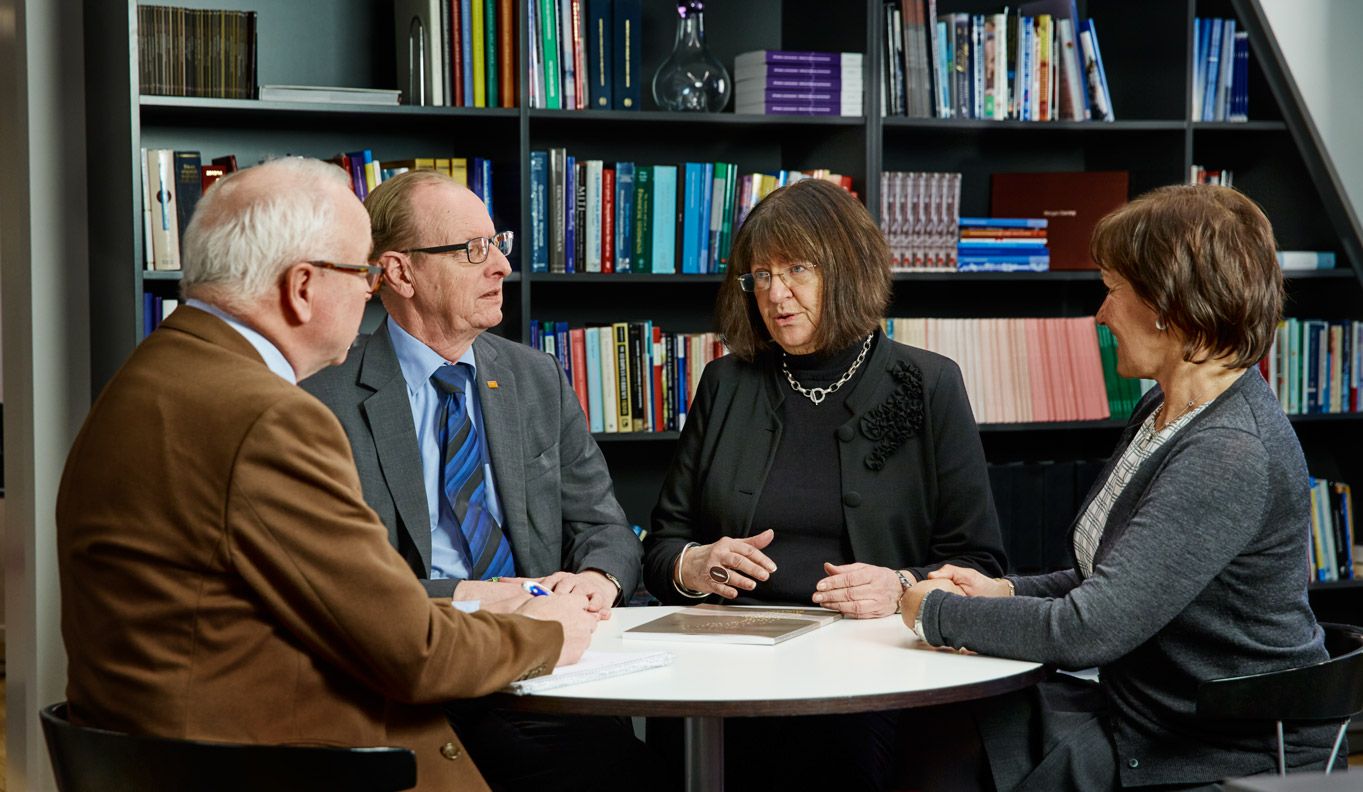A robust pension system
A robust pension system – for you and the next generation. AP3 is tasked with managing the buffer capital to generate maximum benefit for the state income pension system and since its inception in 2001, AP3 has contributed to the system’s long-term stability by ensuring a strong performance of the Fund’s assets.

The buffer capital currently comprises a full 18% of the pension system’s assets and is used when the annual contributions to the system fall short of disbursements. The system comes under pressure when large numbers of people enter retirement and is currently projected to run substantial deficits until 2040.
Here, the AP funds have a key role to play in delivering strong long-term returns on their capital buffer. This is the ultimate responsibility of the funds – to strengthen and protect pension disbursements.
Those of you working and declaring income in Sweden are also investing in your future pension
Pension savers - individuals who work and pay taxes
A pension fee of 18.5% is automatically reserved every year for all individuals who work and declare income in Sweden. Of this, 16% is allocated to the income pension system and 2.5% to the premium pension.
Pensioners - individuals who are retired
The income pension system is pay-as-you-go, meaning that paid-in contributions are used to finance current pension disbursements.
AP Funds
First, Second, Third and Fourth AP Funds are buffer funds. If pension disbursements exceed pension contributions, a withdrawal is made from this buffer. The mission of the AP Funds is to create long-term returns to be used in the event of deficits in the pension system.
Pension system
The current system has worked since 2001. Deficits occur when large numbers of people enter retirement, which has been the case since 2009, and forecasts indicate substantial deficits until 2040. The Swedish Pensions Agency´s
Benefit of AP Funds’ asset management
The AP Funds are committed to managing and protecting the buffer capital for a stronger pension system by creating the stability necessary to ensure pension disbursements.

The new pension system 2000-2024
2024: In January, a supplementary assignment was decided to investigate and propose how the Stockholm-based buffer funds can realize greater economies of scale. The investigator's memorandum was published in June, and the subsequent consultation round ended in October. The political process has since taken over. AP3's board submitted the fund's consultation response in September.
2023: In October 2023, the Government Offices decided to appoint an investigator to propose measures to modernize and streamline the overall management of the buffer funds' capital.
2019: New investments guidelines were implemented for the AP Funds
2017: Government investigates new investment rules for the AP-funds.
2016: The proposal on reformation of the AP-funds is put aside.
2014: The Pensions Group published recommendations to reform the AP fund system.
2013: The combined assets of the AP funds exceed SEK 1,000 billion. Fund strength is 4.2 years and the funds’ capital corresponds to 13% of pension system assets.
2010: Balancing is activated and pensions are cut. Buffer Capital Report commissioned.
2009: AP funds become net contributors to the pension system, i.e. pension liabilities exceed contributions.
2008: Balance figure falls below 1, resulting in a cut in pensions in 2010. Fund strength falls to 3.2 years.
2001: Legislation is passed to reform the AP funds. The current AP funds are established via a transfer of SEK 554 billion to their predecessors. The funds share the capital equally and are given the same mission and investment rules. They are allowed to invest globally and increase their exposure to equities. Together the funds account for 10% of pension system assets and have a fund strength of 3.9 years.
The new pension system 2000-2022
2019: New investments guidelines were implemented for the AP Funds
2017: Government investigates new investment rules for the AP-funds.
2016: The proposal on reformation of the AP-funds is put aside.
2014: The Pensions Group published recommendations to reform the AP fund system.
2013: The combined assets of the AP funds exceed SEK 1,000 billion. Fund strength is 4.2 years and the funds’ capital corresponds to 13% of pension system assets.
2010: Balancing is activated and pensions are cut. Buffer Capital Report commissioned.
2009: AP funds become net contributors to the pension system, i.e. pension liabilities exceed contributions.
2008: Balance figure falls below 1, resulting in a cut in pensions in 2010. Fund strength falls to 3.2 years.
2001: Legislation is passed to reform the AP funds. The current AP funds are established via a transfer of SEK 554 billion to their predecessors. The funds share the capital equally and are given the same mission and investment rules. They are allowed to invest globally and increase their exposure to equities. Together the funds account for 10% of pension system assets and have a fund strength of 3.9 years.
Historical developments in the pension system 1913-1998
1998: Parliament passes bill to reform the pension system. Transition from defined benefit to defined contribution system. Introduction of premium pension system with individual savings accounts.
1984: Pension Commission appointed to evaluate the pension system. Five employee funds are launched as part of the AP fund system.
1974: A fourth fund board is established to invest in equities.
1960: ATP pay-as-you-go system introduced. The AP funds are founded; three fund boards, with a shared office. Investments are limited to fixed income instruments.
1946: State pension system expanded to all citizens.
1913: First state pension system introduced.
Conversation about the development of the pension system
The creators of today's pension system, Bo Könberg and Anna Hedborg, spoke with former AP3 CEO Kerstin Hessius about the pension system. DN's social policy columnist Johan Schück wrote an article about the conversation for AP3's annual report 2014.



